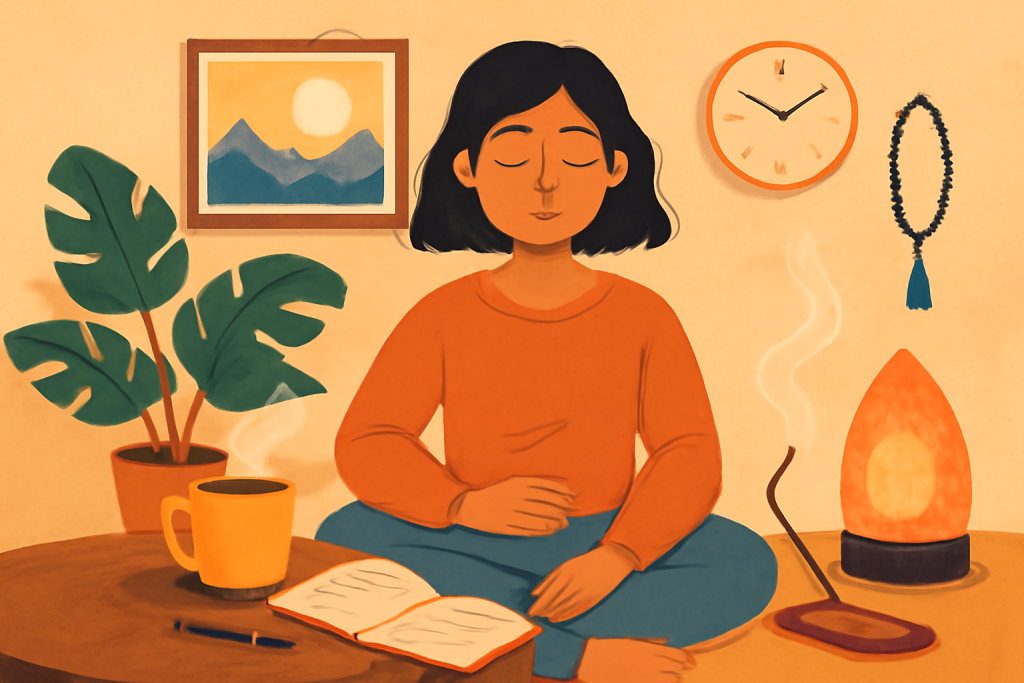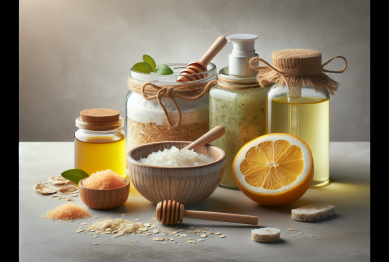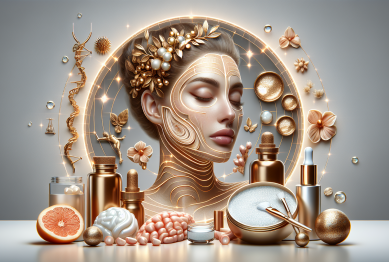Finding peace of mind seems more elusive than ever. However, an ancient practice is experiencing a revival, and it’s proving to have powerful effects on mental wellness – ritual in mental wellness. This practice is ritual – a recurring, structured activity that brings calm, purpose, and connection. As modern mental health challenges increase, rituals are becoming a therapeutic tool in the fight for mental wellness, blending ancient wisdom with modern self-care techniques.

The Mental Health Crisis: Why Rituals Are Gaining Popularity
The growing mental health crisis is hard to ignore. According to recent statistics, 1 in 5 Americans experience some form of mental illness each year. The need for accessible, effective solutions has never been more urgent. Traditional mental health treatments such as therapy and medication are essential, but many people are seeking additional practices to enhance their well-being. Enter rituals—structured, meaningful routines that bring a sense of calm and connection.
Rituals, ranging from mindfulness practices like meditation and yoga to creative outlets like journaling or painting, are becoming increasingly recognized for their ability to alleviate stress, anxiety, and depression. But why now?
The Rise of Alternative Therapies
People are beginning to explore alternative therapies to complement traditional mental health treatments. This shift has been spurred by a growing awareness of mental health, especially in the wake of the COVID-19 pandemic. Many people struggled with isolation, loss, and uncertainty. Rituals provide a comforting sense of stability, structure, and control—qualities that may feel absent in times of crisis.
Rituals offer a moment of focus, a break from chaos, and an opportunity to center oneself. Whether it’s a morning cup of tea or a nightly gratitude journal, rituals create a space where individuals can pause and reset their mental state. As a result, rituals are being recognized not just as cultural or spiritual acts, but as potent tools for mental wellness.
How Rituals Benefit Mental Wellness
1. Rituals Help Reduce Stress and Anxiety
A well-established benefit of rituals is their ability to reduce stress. According to a study published by Harvard Medical School, engaging in structured routines can lower cortisol levels—the hormone responsible for stress. Regular rituals, such as taking time for deep breathing or enjoying a quiet walk, allow individuals to slow down and regain emotional equilibrium in times of anxiety.
- Mindfulness rituals: Meditation, breathing exercises, or a moment of silence can help individuals manage anxiety by promoting relaxation and present-moment awareness.
- Movement rituals: Yoga or stretching routines help release physical tension while boosting mood-enhancing endorphins.
2. Providing Consistency and Stability
Mental health conditions like depression and anxiety often lead to feelings of instability or loss of control. Rituals provide a sense of consistency, offering something to hold onto, especially when life feels unpredictable. According to Psychology Today, this consistency can create a comforting feeling of predictability, giving people a way to manage their day and improve their emotional stability.
- Daily rituals: A regular morning routine—such as making the bed, eating a healthy breakfast, or journaling—gives people a sense of accomplishment and structure to start the day.
3. Enhancing Emotional Connection and Purpose
Rituals are not only beneficial for the individual but can also help strengthen connections with others. Whether it’s a shared family dinner, community prayer, or group meditation, rituals bring people together in a meaningful way. These shared experiences foster a sense of belonging, which is crucial for mental health, particularly in times of loneliness.
- Shared rituals: In families, couples, or communities, shared rituals like weekend meals or evening walks provide opportunities for bonding, conversation, and emotional support.
4. Rituals Support Reflection and Growth
Rituals also encourage reflection, providing individuals with a moment to review their emotions, thoughts, and behaviors. Journaling, for example, allows people to process their experiences and gain clarity on their mental health journey. As The Journal of Positive Psychology suggests, writing about positive experiences and practicing gratitude regularly can enhance well-being and resilience.
- Gratitude rituals: Taking time at the end of each day to reflect on what you are grateful for can shift your mindset, promoting a sense of accomplishment and emotional fulfillment.
Modern Rituals: A Fusion of Tradition and Innovation
As more people seek ways to support their mental wellness, new forms of ritual are emerging. These modern adaptations blend traditional practices with contemporary needs, offering a customized approach to healing.
Digital Rituals
In a digital age, rituals have also moved online, making them more accessible and adaptable. Virtual meditation sessions, mindfulness apps, and online journaling platforms are booming. These digital tools allow individuals to integrate rituals into their hectic schedules, making them a convenient option for modern wellness seekers.
- Mindfulness apps: Apps like Headspace and Calm offer guided meditations and breathing exercises, creating a ritualistic experience that fits seamlessly into users’ routines.
Fitness Rituals
Fitness practices like yoga and tai chi have long been associated with mental wellness, but they are now being modernized to incorporate elements of mindfulness and mental clarity. These practices provide not only physical benefits but also emotional and mental relief, promoting a sense of calm and self-awareness.
- Online fitness classes: Virtual yoga or Pilates classes now incorporate breathing exercises and relaxation techniques to enhance mental wellness, making it a holistic ritual.
The Scientific Backing: Why Rituals Matter for Mental Health
The growing trend of incorporating rituals into mental wellness has been met with increasing scientific validation. Research from the American Psychological Association supports the notion that rituals can help individuals cope with stress and create a sense of mental well-being. Furthermore, studies have demonstrated that regular participation in structured rituals can lead to long-term improvements in both physical and mental health.
A study conducted by the National Institutes of Health (NIH) also found that rituals can help regulate emotions and promote a sense of purpose. Whether it’s through religious ceremonies or personal practices, rituals provide a psychological anchor during turbulent times.
Practical Tips for Incorporating Rituals into Your Life
- Start small: Begin by introducing a simple ritual, such as drinking a cup of tea every morning or journaling before bed.
- Create consistency: The more consistent you are with your ritual, the more impactful it will be. Try to perform it at the same time each day.
- Personalize your ritual: Choose activities that resonate with you—whether it’s art, music, nature walks, or breathing exercises. Find something that feels fulfilling.
- Be patient: Rituals take time to make a noticeable impact. Give yourself grace and flexibility as you integrate them into your daily routine.
Conclusion
As the search for mental wellness continues, rituals are emerging as a valuable tool in supporting mental health. Whether through reducing stress, creating stability, or promoting reflection, rituals offer a practical, meaningful way to improve well-being. By embracing the power of these ancient yet modern practices, we can cultivate a sense of peace and resilience in our chaotic world.
References
- Harvard Medical School. (2020) ‘The Benefits of Rituals for Mental Health.’ Harvard Health Publishing. Available at: https://www.health.harvard.edu (Accessed: 10 May 2025).
- Psychology Today. (2019) ‘How Rituals Help Reduce Anxiety and Stress.’ Psychology Today. Available at: https://www.psychologytoday.com (Accessed: 10 May 2025).
- The Journal of Positive Psychology. (2021) ‘The Impact of Gratitude Rituals on Emotional Well-Being.’ The Journal of Positive Psychology, 16(3) pp. 324-338.









